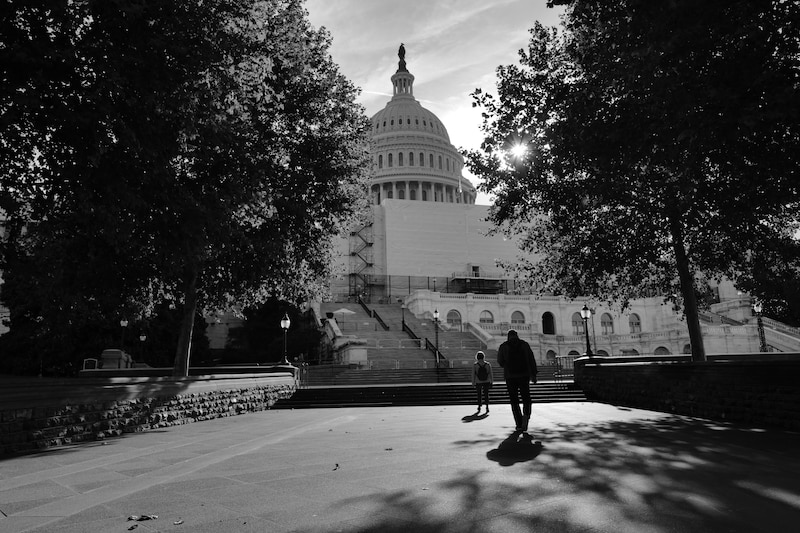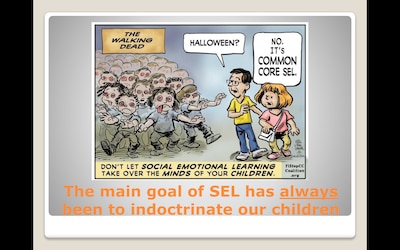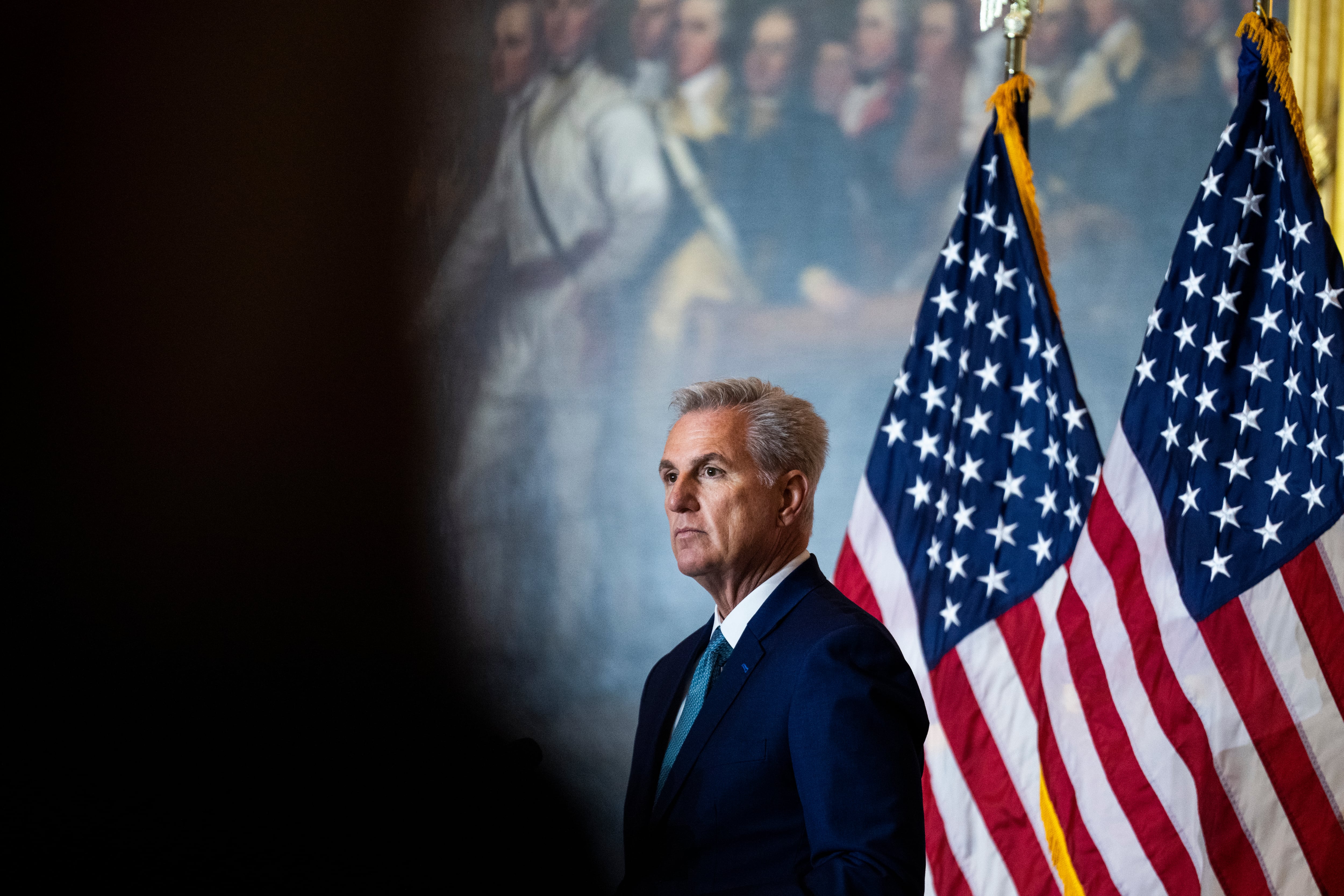Republicans generally agree that the pandemic left students’ mental health in tatters. But when it comes to addressing the crisis, the accord crumbles.
In Congress, some Republican lawmakers are working on a bipartisan youth mental health bill and a few voted for a major school safety and mental health act. But the vast majority voted against the act and another recent mental health bill. At the state level, some Republican legislators and governors have quietly supported school mental health services. But others have loudly called for bans on social-emotional learning and new restrictions on school counselors.
The party’s ambivalence owes partly to wariness about government spending, but it also reflects how students’ mental health has become embroiled in recent political debates around gun control, pandemic school closures, and parents’ rights. To conservatives who accuse teachers and librarians of imposing liberal views on students, school counselors are suspect too.
Some critics say schools should focus on academics and, as one Texas group put it, “Leave mental health and parenting to parents.” Many in the GOP appear to share that view: Just 44% of Republicans who voted in the midterms said it was very important for schools to provide more mental health services, compared with 82% of Democrats, according to a November survey.
The fissures cast doubt on whether Republicans, who in the midterms won control of the House of Representatives but not the Senate, will prioritize student mental health — especially as the sense of urgency created by the pandemic and the deadly school shooting in Uvalde, Texas begins to fade. With many on the right already opposed to the amount of federal aid that schools received during the pandemic, some advocates worry the recent surge of funding for school mental health services will slow to a trickle.
“We’re less likely to see that type of continued investment,” said Anne Hyslop, director of policy development at the advocacy group All4Ed and a former Education Department official during the Obama administration. “Especially with the House now being controlled by Republicans, it’s going to be harder.”
GOP ties mental health to school reopening, shootings
As young people’s mental health deteriorated during the pandemic, both parties seized on the issue.
To Democrats and their union allies, the crisis confirmed their long-held view that schools need more resources. President Biden called for doubling the number of school psychologists and counselors, while Democratic governors from California to Wisconsin unveiled plans to ramp up mental health spending.
By contrast, Republicans saw students’ mental distress mainly as evidence of the harm caused by school closures. In March 2021, House Minority Leader Kevin McCarthy said remote learning had caused rates of anxiety and depression to soar.
“The immediate solution,” he said, “is to work together to reopen every school in America now.”
As schools reopened, Republicans became less outspoken about student mental health. Few GOP candidates mentioned the issue during this year’s gubernatorial races, and the House Republicans’ recently unveiled policy agenda makes no mention of it.
When Republicans did sound the alarm this year about mental health, many did so in the context of mass shootings, despite research challenging that linkage.
Ahead of the midterm elections, Republican candidates for governor in Arkansas, Florida, Iowa, and Nebraska all touted mental health support as a way to make schools safer without restricting access to guns. After a gunman killed 19 children and two teachers at a Uvalde elementary school this May, Texas Gov. Greg Abbott blamed mental illness even as he acknowledged the shooter had no known diagnoses.
In June, just weeks after the Uvalde massacre, Congress passed the Bipartisan Safer Communities Act, which includes some gun-control measures and $1 billion to help schools hire more mental health staffers. While the majority of Republicans opposed the bill, 14 GOP members in the House and 15 in the Senate voted yes, as did every Democrat.
Jennifer Snow, policy and advocacy director for the National Alliance on Mental Illness, said even that limited cooperation was significant.
“We have so few bipartisan issues nowadays,” she said. “Of course that’s not going to fix everything, but we know that those resources are so desperately needed.”
Mental health gets pulled into culture wars

If mental health has occasionally united the parties, it’s just as often served as culture war fodder.
Conservative critics say educators sneak in lessons on racial justice under the guise of social-emotional learning, or SEL, which is meant to teach students how to manage their emotions and interact with others. Critics also oppose school counselors talking to students about their gender identity or sexuality without informing parents.
“Modern school counselors are zealous social justice meddlers bent on replacing parents,” said a recent post on a website run by The Charlemagne Institute, an influential conservative think tank. The parent group No Left Turn in Education includes school counselor and psychologist associations on its list of organizations “poisoning” children’s minds.
The critiques have had real consequences. In a recent survey, nearly 40% of high school principals said parents or community members have challenged SEL programs. Lawmakers in Oklahoma moved to ban SEL, and the Florida education department rejected dozens of math textbooks that officials said featured SEL or other “divisive concepts.”
Alabama passed a law forcing counselors to tell parents when students discuss their gender or sexuality, while a new Arizona law gives parents access to their children’s school counseling records. In Connecticut a local school board blocked a state-funded mental health clinic from opening inside a high school this year due to concerns that it could undermine parents’ authority.
Max Eden, a research fellow at the American Enterprise Institute, a conservative think tank, said much of the recent controversy centers around transgender and nonbinary students. Most mental health experts and advocacy groups, including the American School Counselor Association, say schools should affirm students’ gender identity and allow them to use the corresponding pronouns and bathrooms.
“The social-affirmation model” is “different than the concept of mental health held by a lot of people on the right,” Eden said, adding that his “tentative prediction” is “the gender identity debate will blow up the consensus around mental health.”
Republicans in Congress also have taken up the issue. Last year they introduced a Parents Bill of Rights that says families must agree before students are screened for mental health issues. In September, more than 200 House Republicans voted against a bill that would fund school mental health services. Some cited Democrats’ refusal to add an amendment requiring parental consent for any school services.
“At every turn, the Left is attempting to undermine the rights of parents,” said Rep. Virginia Foxx, a North Carolina Republican, in a press release.
Some on the right have also raised privacy concerns about school counseling and surveys, while others say the focus on mental health and social-emotional learning distracts from schools’ core academic mission.
“We need to return to more traditional foundational education,” wrote two leaders of a county Republican party in Alabama, “based on the teaching of facts, not feelings and attitudes.”
States search for middle ground
Some states have sought a middle ground that appeases conservative critics and promotes student wellness.
During the pandemic, 38 states enacted more than 90 laws meant to strengthen mental health services in schools, according to an analysis by the National Academy for State Health Policy. Several of the states also passed restrictions on counseling or social-emotional learning.
Alabama now funds mental health coordinators in nearly every school district, while also requiring schools to get parents’ consent for counseling. In Florida, Gov. Ron DeSantis expanded school mental health funding while also trying to purge SEL from textbooks.
In Utah, two Republican state lawmakers — Sen. Daniel Thatcher and Rep. Steve Eliason — have championed the issue of student mental health, sponsoring bills to fund school counseling and create a mental health curriculum. Thatcher also proposed a three-digit crisis hotline, which former Utah Sen. Orrin Hatch and Rep. Chris Stewart brought to Congress, resulting in the country’s new 988 Suicide & Crisis Lifeline.

Yet some mental health efforts still have faced opposition. Last year, members of the group Utah Parents United denounced a school district’s SEL program, leading officials to scrap it. In a presentation titled “Sinister SEL,” group member Lisa Logan said the goal of such programs is to indoctrinate children, which she compared to the Nazis’ Hitler Youth program.
“We see this now, this Marxist-Leninist ideology being pumped into the soft heads of our kids through social-emotional learning,” she said, in a video of the presentation.
In an interview, the group’s cofounder and public relations director, Corinne Johnson, said Logan is an adviser who is not on the group’s board. Johnson called the Nazi reference “shocking” and said she would not make that comparison.
SEL programs can teach children interpersonal skills but should not promote specific ideologies, Johnson said. She added that the group isn’t against schools providing some mental health services, as long as they include parents.
“We know our children best,” she said, “and we have the innate right to be involved in any decisions that are made.”
In Park City, Superintendent Jill Gildea said her school district hasn’t gotten much pushback against their SEL work, though a few people have raised concerns about schools “overstepping” into parents’ territory. But the lessons are never political, and the only goal is to make students feel safe and supported, Gildea said.
“That’s kind of what we all want for all the kids,” she said.
Patrick Wall is a senior reporter covering national education issues. Contact him at pwall@chalkbeat.org.





